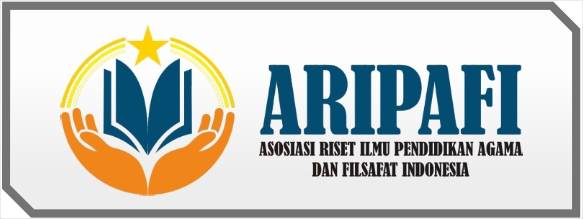MENJAWAB SYUBUHAT TERHADAP AL QURAN
DOI:
https://doi.org/10.63761/jiel.v2i1.44Keywords:
Muhammad's treatiseAbstract
Efforts to weaken the position of the Qur'an through paleography are carried out by trying to collect old Qur'anic manuscripts and colliding between one documentation note and another. Differences in the writing and use of letters, diacritical points, placement of verses, and so on will be a study that will usually dwell on and lead to the discourse of errors in the transmission, codification, and compilation of the Qur'an. However, orientalist studies through paleographic doors do not seem to have found a strong argument. Thus, it can be said that this orientalist attack on paleography is a form of attack that tries to deconstruct the Arabic language and will indirectly affect the study of the language of the Koran in relation to the process of transmitting the holy book of Muslims from generation to generation. In addition, efforts to deconstruct the Koran are also carried out through efforts to deconstruct and delegitimize the character and the role of the Prophet Muhammad as the recipient of revelation. Issues such as polygamy, the Prophet's jihad, gender issues, and various other discourses were rolled out with the aim that belief in the Prophet's personal credibility melted and had a direct or indirect impact on what he received, namely the acceptance of Muslims towards the Qur'an. In fact, in general, orientalist studies are deliberately directed to the level of assuming that the Qur'an is the words of Muhammad alone and not the revelation of Allah. and various other discourses were rolled out with the aim that belief in the Prophet's personal credibility melted and had a direct or indirect impact on what he received, namely the acceptance of Muslims towards the Qur'an. In fact, in general, orientalist studies are deliberately directed to the level of assuming that the Qur'an is the words of Muhammad alone and not the revelation of Allah. and various other discourses were rolled out with the aim that belief in the Prophet's personal credibility melted and had a direct or indirect impact on what he received, namely the acceptance of Muslims towards the Qur'an. In fact, in general, orientalist studies are deliberately directed to the level of assuming that the Qur'an is the words of Muhammad alone and not the revelation of Allah.
References
A’zami, The History The Qur’anic Text : from Revelation to Compilation. (Jakarta: GIP , tth)
Abdul Shabur Shahin, T?r?kh al-Qur'?n, (Kairo: Nahdet Mesir, 2007)
Abu Bakar Aceh. Sejarah Al Quran. (Surakarta: Ramadhani, 1989)
Adnin Armas. Metodologi Bible dalam Studi Al Quran. (Materi download ebook dari www.pakdenono.com, 8 Maret 2012 )
Al Baqillani. I’jaz Al Quran. (Al Maktab al Islami : Damaskus.tth)
Al-A'zami dalam The History of The Qur'anic Text-From Revelation to Compilation, terj. Sohirin Solihin, et; al. (Jakarta: Gema Insani Press, 2005)
Hamid Fahmy Zarkasy. Menguak Nilai di Balik Hermeneutika. (Jakarta: Islamia, 2004). h. 28
Kurniawan, M. A. (2022). KONSEP PENDIDIKAN KARAKTER DALAM AL-QUR’AN. Al Mumtaz: Jurnal Pendidikan dan Sosial Keagamaan, 1(1), 1-12.
Mahfud, S. A., Mujib, A., Kurniawan, M. A., & Yunita, Y. (2015). Pembelajaran Pendidikan Agama Islam Berbasis Multietnik. Deepublish.
Muhammad Muhammad Abu Syuhbah, Al-Madkhal li dirâsati al-Qur'âni al-Karîm, Cet ke
III, (Riyadh: Dâr al-Liwâ, 1987), 211 Idris A. Shomad. Al Quran Sebagai Wahyu Illahi. (Jurnal Al Insan vol. 1 No. 1, 2005)
Musthafa A’zami. The History of The Quranic Text :from Rrevelation to Compilation. (Materi download ebook dari www.pakdenono.com. 8 Maret 2012 )
Nashroen Haroen, Ushul Fiqh. (Jakarta: Logos 1997).
Sholahuddin, Henry. Al Quran Dihujat. (Jakarta: Al Qalam : 2007)
Tim Departemen Agama. Al Quran dan Terjemahannya. (Surabaya: Jaya Sakti : 1989)














